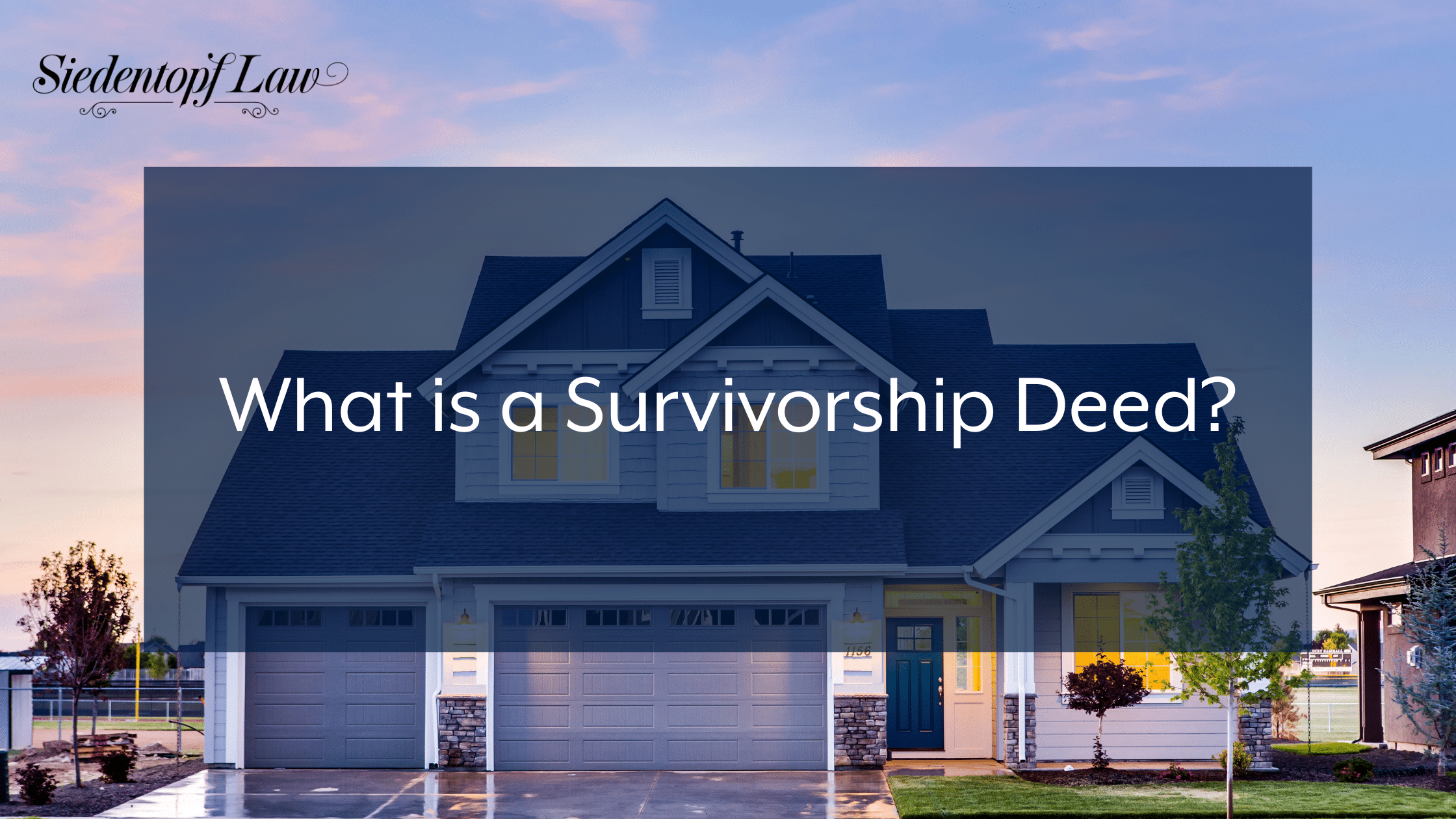What is a Survivorship Deed?

A deed is the legal document that outlines the exact description and location of a property. It also clearly names the owner of the property.
There are different types of deeds but today we will be discussing a Survivorship Deed.
Survivorship Deeds
A Survivorship Deed is also commonly known as a Joint Tenant With Right of Survivorship Deed, oftentimes abbreviated to JTWROS. This type of deed allows a person to own the property jointly with another person, but at the time of the death of one of the owners, that owner’s right of ownership transfers to the other owner. As the name implies, the survivor now owns the deceased person’s property rights.
One of the great things about a survivorship deed is that it avoids probate. It allows the property to transfer to the survivor without going through the probate court. This can be a very appealing and time saving way to transfer property at your death. Probate can be a long, drawn out process, so the appeal of a Survivorship Deed is that it eliminates the need for probate.
This type of deed is similar in some ways to a Lady Bird Deed, also known as a transfer on death deed. But just because it looks similar on the face does not mean it is the same.
Lady Bird Deeds
Lady Bird Deeds, much like a Survivorship Deed, transfer your interest in a property at your death without the need for probate. Where they differ is how they transfer your interest. With a Survivorship Deed, your interest is transferred to the other joint owners of the property. With a Lady Bird Deed the property transfers to a named beneficiary. This means that the beneficiary does not have to have interest in the property already. A Lady Bird Deed operates in a similar fashion to a beneficiary designation for a life insurance policy. At your death the asset transfers to the named beneficiary.
Isn’t a Deed a Deed?
You may be wondering why you would want to utilize a Survivorship Deed. Imagine this scenario: you and a loved one own a property together. It’s your intention that upon your death your interest in the property would pass to the loved one who shares ownership with you. If you employ a Survivorship Deed this is exactly what happens at your death.
Conversely, if you don’t have a Survivorship Deed and you are relying on a Will to accomplish this transfer, your interest in the property will have to first be probated. Probate can be a long and drawn out process— even when the Will is crystal clear.
But imagine you don’t even have a Will. This means that your interest in the property has to be probated but the process looks to the laws as to who inherits any assets. Meaning, even if you own the property with a loved one and you intended that loved one to have full ownership of the property at you death, if that loved one is not a recognized heir then they will not inherit it. A recognized heir will inherit instead.
Utilizing Trusts for Property
While Survivorship and Lady Bird Deeds are incredible tools to help transfer property at your death while avoiding probate, a Trust is often the very best way to accomplish the same thing.
A Trust allows you to get super specific about exactly how a property is transferred and to whom.
A Trust clearly outlines your wishes— even more robustly than a Will— and provides easy to follow instructions for your Trustee. This alleviates stress and an emotional burden from your loved ones.
Your Trust clearly identifies how you want each property to be utilized after your death. You may choose to have your Trust operate the same way as a Survivorship or Lady Bird Deed. But you may have certain things that need to be done or achieved before the property can transfer.
If using a revocable living trust, you can also change your mind and make changes to these distributions. That means if the relationship changes, you can just make the change to your Trust. If you have a Survivorship Deed instead of a Trust, the other property owner would have to sign off on the changes.
The purpose of estate planning is to allow you to make your wishes known, leave behind the legacy you wish to, and limit any arguments and stress between the loved ones left behind. If you’re considering how to pass real estate onto a loved one after your death, we can help! Call us at (404) 736-6066 to schedule a consultation.
